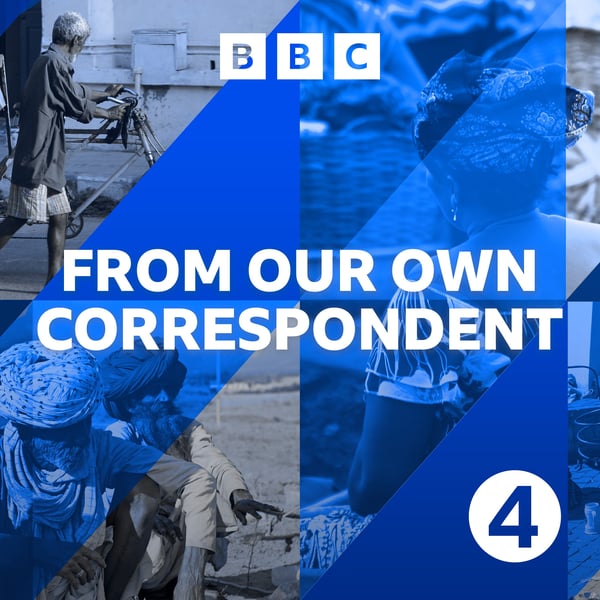Brazil's Deadly Landslides
From Our Own Correspondent
BBC
4.4 • 1.3K Ratings
🗓️ 24 February 2022
⏱️ 29 minutes
🧾️ Download transcript
Summary
Transcript
Click on a timestamp to play from that location
| 0:00.0 | BBC Sounds, Music, Radio, Podcasts |
| 0:05.0 | Today we hear about a confrontation with a priest and the challenge of bringing child sex offenders to justice in Italy. |
| 0:13.0 | In Iraq, we're in the desert just west of Nazaria to visit the ancient Mesopotamian site of Ur and witness the country's checkered relationship with conservation. |
| 0:25.0 | In Riyadh, Saudi women may be able to drive, but our correspondent finds there's still a marked contrast between what's acceptable for women in public and in private. |
| 0:37.0 | And in Australia, tourists finally make their jubilant return to the country as it reopens after Covid, and our correspondent reflects on being reunited with her husband after 18 months apart. |
| 0:51.0 | The first intense rain last week caused deadly flash floods and mudslides in the Brazilian city of Patropolis, nestled in the mountains north of Rio de Janeiro. |
| 1:03.0 | So far more than 170 people have died and more than 100 are still missing. While the authorities blamed the intensity of the rainfall a month's worth of rain fell in just a few hours, undoubtedly one of the biggest factors was inequality. |
| 1:20.0 | Most of the worst affected neighborhoods were poorer, unofficially built areas with little oversight from the authorities. Katie Watson met survivors as they searched for their loved ones. |
| 1:33.0 | As we drove into Patropolis, we stopped a man on the side of the road and asked him for directions. |
| 1:38.0 | Do you know the way to Mahodovicina, we asked? It was one of the worst affected areas, a focal point for the rescue effort. |
| 1:46.0 | Mahodovicina doesn't exist anymore, he said matter of factly, it's been wiped out. He carried on talking, tanning us in a long-winded fashion, how to get there, the roadblocks that had been put in place, the conditions in the city, and the help residents were offering to the victims. |
| 2:04.0 | Clearly traumatized, he wanted and needed to talk. |
| 2:09.0 | When we arrived at Mahodovicina, residents were waiting for firefighters to turn up and begin the day's work. |
| 2:16.0 | One man, dressed in a camouflage jacket, had an air of authority, tanning the press where to stand, ordering people to move away and let the authorities do their job. |
| 2:27.0 | I first thought he was a firefighter himself, but no. My son's buried in this mud, he said. From where we were standing, the red mud was several metres thick. |
| 2:37.0 | It was as if the shock and trauma had pushed him into action, he was keeping himself busy. His only goal was to recover his son's body. |
| 2:47.0 | Late that morning we walked up the side of the hill, through the part of the neighbourhood that was still standing. It was there we met Nielsen. |
| 2:55.0 | You could see the deep sadness in his eyes, he was on the edge of tears as he talked to us. |
| 3:01.0 | He'd come to find his sister Mary Lenny. When the mudslide hit, she'd been in the kitchen with her daughter. |
| 3:08.0 | She pushed her out and told her to run, he told us. His niece was found crying a few hours later, near where her house once was. |
| 3:17.0 | We met Nielsen on the second full day of searches after the mudslides hit. He'd accepted by then that this was more likely to be a recovery effort rather than a rescue mission. |
| 3:28.0 | I've got hope he told me, but every minute it diminishes. Hope, though, is the last thing to die. |
... |
Please login to see the full transcript.
Disclaimer: The podcast and artwork embedded on this page are from BBC, and are the property of its owner and not affiliated with or endorsed by Tapesearch.
Generated transcripts are the property of BBC and are distributed freely under the Fair Use doctrine. Transcripts generated by Tapesearch are not guaranteed to be accurate.
Copyright © Tapesearch 2025.

